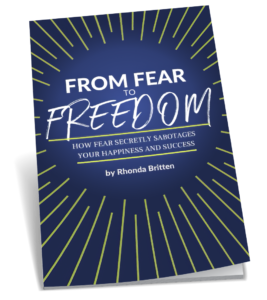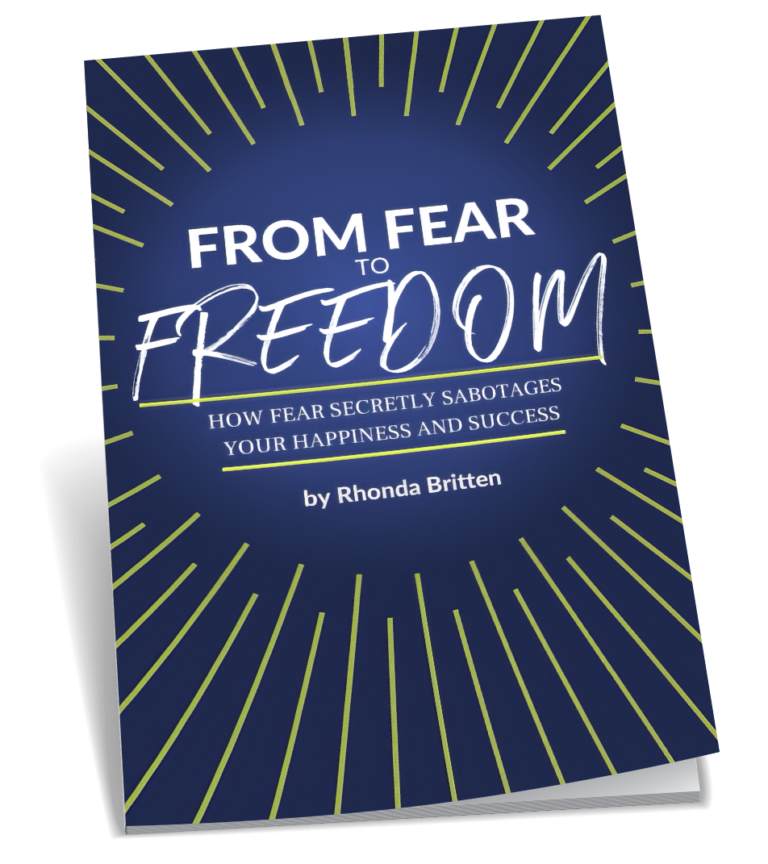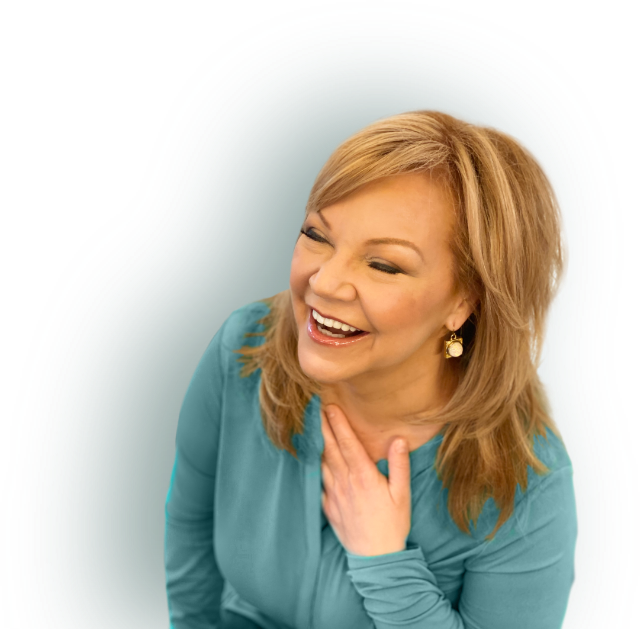Every human being you have ever known has experienced fear more times than they can count. It’s our most PRIMAL survival mechanism. But what causes fear? And how do we respond to it? Is your first instinct fight or flight?
Fear is an evolutionary response to danger. If we weren't afraid of getting injured, we wouldn’t jump out of the way of a train bearing down on us. Simply put, without fear, we would never have evolved, and none of us would be here to ask these questions.
While what causes fear has helped us survive, what happens when the circumstances that shaped them no longer exist? Yet the fear remains? To put it, we don’t need to fear starving if we live near a grocery store and have money. But once that fear response is instinctive, you’ll start becoming afraid every time you open your last gallon of milk. (Don’t worry—we’ll work on this later!)
And fears, both emotional and physical, hold us back. For me, this limiting fear was a fear of forgiving myself. It ran my life for 20 years.

Years after I lost my mother and father in a matter of seconds, I was terrified of forgiving myself. How could I when I blamed myself—couldn’t I have intervened and kept them alive? That fear of forgiveness defined me. I thought the guilt I felt reflected who I truly was—that I was a bad person. It controlled my actions, how I saw myself, how I interacted with others, and what I thought was possible—I became an alcoholic, got three DUIs, and even attempted to end my life three times. But after years of struggling with it, I got the courage to move forward.
I realized that my guilt and fear of forgiving myself was not going to bring back my mother, punish my father, or make me any better. Instead, I started remembering compliments I received, positive affirmations about myself, and I wrote them down. This was just the beginning.
In this post, I’m going to discuss what causes fear, what happens when we encounter fear, and the strategies we can use to overcome it. We’ll start with the science behind what causes fear, but you can skip to the good stuff if that’s not your thing.
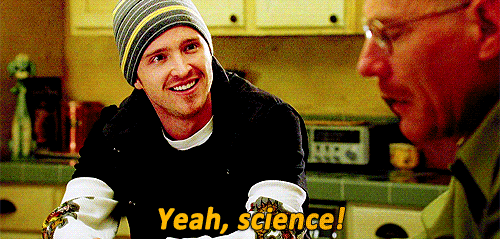
Fear Is Natural, But Too Much Is Limiting
Feeling fear is natural, and it keeps us alive. If you’re afraid of bears, your body will give you cortisol that helps you run away faster and for longer than if you weren’t afraid. But the problem is if the bear isn’t only imaginary, but it also comes home with you. That keeps you drained, doubting, and unable to really enjoy life!
Maybe you’re afraid of being rejected in social situations because you felt isolated as a child. That fear once heightened your awareness so you could be more aware of others’ behaviors, choose your words carefully, etc. Great! But maybe now that you’ve grown up and learned how to smile and make small talk, a room of faces actually lights up when you walk in. Your fear no longer helps you. In fact, it drains your energy.
There are so many variations of this—I’ve worked with many clients who are haunted by a fear of failure, a fear of not being good enough, a fear of death—you name it! But when you’ve outgrown the situation those fears come from, they can keep you from applying for that job, having a healthy relationship, and, most importantly, trusting and having faith in yourself.
Often what causes fear, like asking someone out on a date or asking a question at a meeting, doesn’t have to jumpstart our fight-or-flight response. Yet when we’re plagued by fear, small things can send us spiraling.
The Science Behind What Causes Fear
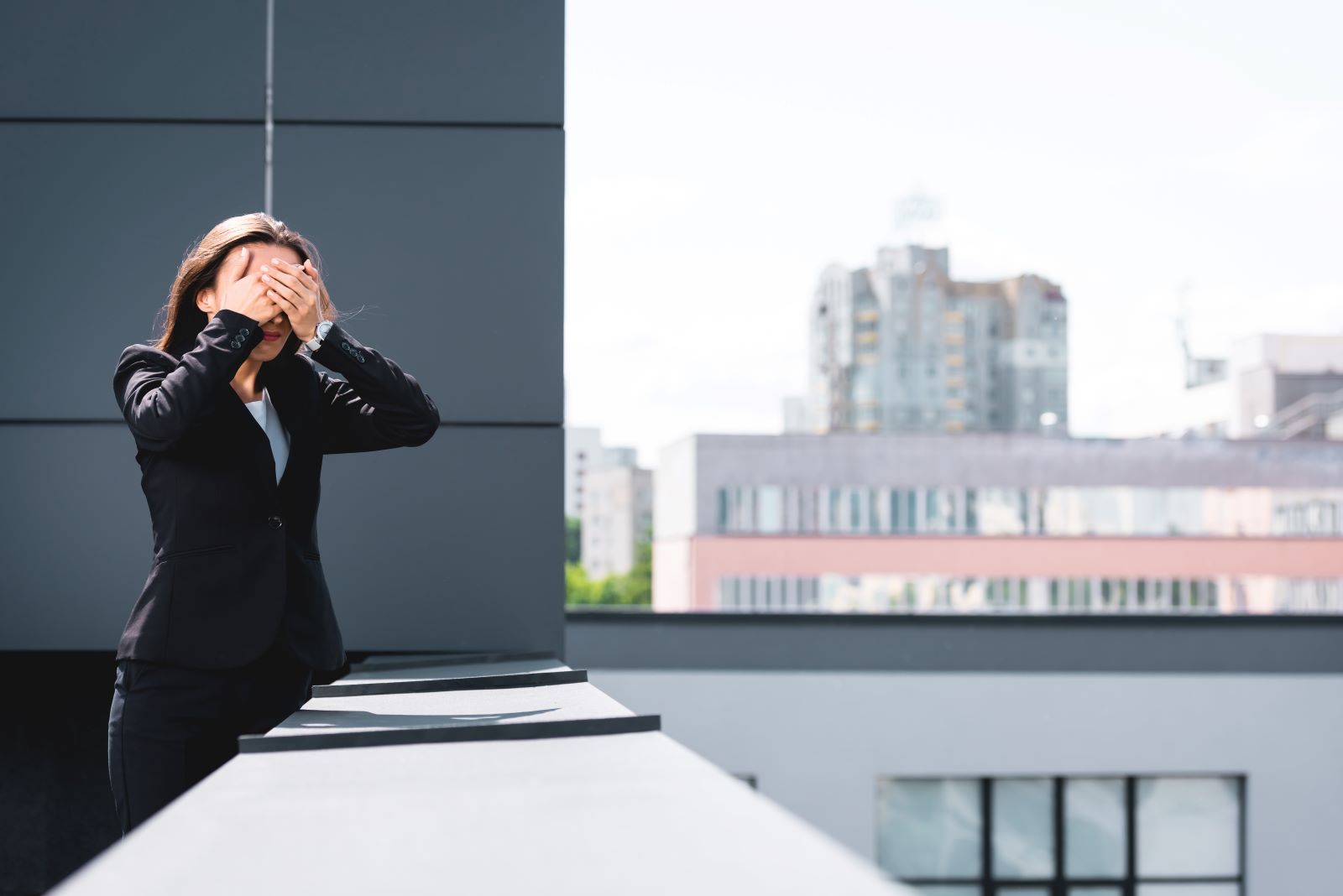
Okay, fair warning: I’m going to get into some science here. If your eyes glaze over at the thought of learning about the amygdala or hypothalamus, just jump ahead. (I won’t tell!)
Our biological drive to survive is what causes fear. When human beings are confronted by stressful or potentially dangerous situations, our eyes and ears send the information to the amygdala, the area of our brain that helps us process emotions. If the amygdala perceives danger within this information, it immediately sends a distress call to the hypothalamus.
The hypothalamus acts as our command center. It’s the area of the brain that communicates with the rest of our body via our autonomic nervous system. The autonomic nervous system controls involuntary, automatic bodily functions such as our breathing and heartbeat. The system has two mechanisms: the sympathetic nervous system and the parasympathetic nervous system. The former triggers the fight-or-flight response in our bodies, whereas the latter calms our body down after the perceived threat has passed.
If you find all that jargon interesting, you can read more about the science behind what causes fear from Harvard Medical School.
What causes fear and how deeply we experience it is different from person to person. Fear begins as rational. For example, a fear of heights makes sense—the higher up you are, the more likely a fall will kill you. But fear of heights is enough to make some people completely avoid any elevators, escalators, or even ladders.
Some of the most common fears are:
- Fear of enclosed spaces (claustrophobia) or open spaces (agoraphobia)
- Fear of heights (acrophobia)
- Fear of public speaking (glossophobia)
- Fear of social situations (social phobia or social anxiety disorder)
- Emotional fears:
- Fear of failure (atychiphobia)
- Fear of change (metathesiophobia)
- Fear of not being good enough (atelophobia)
Some of these are physical fears, and some are emotional. And while the physical ones might seem more unusual, guess which ones are the most common? The emotional. These are ones that we carry with us everywhere, like a fear of not being good enough or a fear of change. If we let them, these fears can take control of our lives. These are the ones we really need to dig into. Luckily, they’re also the ones we work through at Fearless Living!
Fear Responses: Emotional Limitations
Emotional fears, rather than physical fears, are probably the ones that will eat you from the inside out like some nightmare hamster.
They’re not as simple as a fear of snakes or a fear of heights. They’re deeply rooted in how we feel, how we act, how we treat others, and how we treat ourselves. This means they affect us the most and they’re the most difficult to crack.
Emotional fears can affect every aspect of your life, just as they did mine. They’re sneaky and sinister. Emotional fears tell us we’re not good enough, that we can’t do it, and that failure is inevitable. They tell us not to bother and that there’s no point in trying.
Fear of failure, loss, change, intimacy, judgement, success, the unknown, loneliness, rejection, forgiveness, and not being good enough are all real, ingrained fears that can severely limit our quality of life.
Emotional fears can cause:
- A hesitation to start or try new things
- Difficulty maintaining relationships
- Staying in abusive relationships
- Trouble letting go
- Avoiding social situations
- Telling yourself you’re not good enough
- Telling yourself you can’t do it
- Telling yourself nobody likes you
- Putting yourself down in front of other people
- Ending a relationship before it’s even begun because “it could never work”
- Resorting to violence
- Alcohol and narcotics dependencies
I’ll say it again—these fears probably once kept us alive. But as we outgrow our circumstances, they work against us. For example, a fear of intimacy makes sense if you felt the caregivers who were supposed to love and attend to you were detached as floating glaciers. But once you’re an adult, the fear doesn’t apply—and it keeps you from experiencing the love, support, and connection that comes with a healthy relationship.
Note: If you want to learn more about this, I wrote in detail about the 10 different types of emotional fears people experience, including how to identify your fears and how to overcome them.
Fear Responses: Physical Symptoms
When we feel fear, stress hormones are triggered in our bodies through our nervous system. You’ve probably heard of the fight, freeze, or flight responses before and likely already understand how you respond to perceived threats and dangerous situations—the tingling in your limbs before you react, or feeling like it’s too dangerous to move. Do you stand and fight the threat, flee to safety, or remain frozen, hoping the discomfort just ends? Either way, our body is primed for action.
Again, this stress response is extremely helpful when confronted with genuinely dangerous situations. However, since many of us (hopefully!) no longer need to hunt, gather, and flee predators in the wild, our fight-or-flight response can hold us back in typical, day-to-day situations like giving a presentation at work.
People living with fear frequently have their fight, freeze, or flight responses triggered even when there’s nothing to actually be afraid of. This can lead to a range of responses, from anxiety disorders and panic attacks to biting your nails, berating yourself, and just worrying each night if you said and did the right thing during the day. To sum up, fear is an iron weight that can hold you down. And if those moments pop up all the time, they can wear on you.
Physical symptoms of fear can include:
- Dilated pupils
- Dry mouth
- Shortness of breath
- Sweating
- Trembling or shaking
- Nausea
- Headaches
- Increased blood pressure
- Increased heart rate
- Irregular heart rate
- Heart attack
Fear Responses: Psychological Symptoms
During moments of extreme fear, we can feel disconnected from our surroundings and out of control of our own bodies and minds. That detachment can feel as if you’re watching your life through fogged glass. And, we feel powerless to stop what’s happening or escape the overwhelming emotions.
Over time, the persistence of these feelings can lead to further feelings of helplessness and anxiety, leading to panic disorders, depression, and even addiction. Yeah, not a fun place to be in, to say the least.
Keep in mind that most people won’t find themselves in these particular valleys. Rather, you’ll more commonly experience everyday confusion, overwhelm, procrastination, doubt...darknesses we tend to accept as part of everyday life even if they don’t have to be.
But if you get to that place, and many people do, remember to ask for help. From a friend, from a mentor, from a therapist, from a random help article—talk to someone. There’s a way out.
How To React To Fear in a Healthier Way

Now that’s A LOT about what causes fear…but what can you do about it?
Even though we all experience fear differently, fear is universal. You are not alone in how you feel. Actually, every single person feels fear. It affects more people than the common cold! And that’s because it’s a human experience. But, there are many ways to overcome even the worst of fears so they don’t prevent you from enjoying life..
After better understanding what causes fear in yourself, you can begin implementing strategies to manage it. Working to overcome fear takes time and consistency, but the more you work at it, the better you can meet your potential and truly enjoy life.
Don’t Let Negative Thoughts Decide Your Life
Negative thoughts are some of the most common ways fears show up. We might believe negative thoughts (“You can do better!” “Why aren’t you keeping your eye on the prize?” “You look like an idiot.”) are accurate portrayals of who we are or how we motivate ourselves to be better. But actually, this is just fear of failure, fear of not being good enough to receive love, fear we won’t be accepted unless we check so many boxes. But the fears aren’t true, and neither are the negative thoughts.
First comes the trigger. Then the anxiety. And then worrying about when the situation will end. Then doubting ourselves (“How could I be so weak as to still be affected by this??). Then recovery. Then worrying about when the next fear will come. Cheezus—it never stops! And here’s the other thing: all this might be happening without realizing the root of fear behind it. That’s why awareness is the most important step. More on this later.
I am no exception. I’ve been battling negative thoughts and crippling fear for years. But trust me—eventually, I stopped listening to my negative thoughts. And over time, they got softer and softer until they were gone! I remember when this happened—as I was talking to myself, the voice that would usually come in and say its negative whatever was gone. I looked around, and there was only silence.
However, this takes time. Until then, know that the cycle of experiencing negative thoughts and fears will continue. But your biggest ally is awareness—the second is action. When I see this is happening, I check in with myself. I have to remind myself that I am good enough. I am more than good enough. I am strong. I am capable. I am doing the best I can. And how I talk to myself matters.
You are much more than good enough, too. And you need to start telling yourself you are. We all have different negative feelings that justify our fear responses. It’s important for us to honor those feelings since all feelings are valid, but we can’t let these negativities lead us toward an unhealthy amount of fear.
Basically, you don’t want to suppress your fears—that just leads to pent up pressure that gets released in a San Francisco-style earthquake! No, you want to stop letting them sit in the driver’s seat. Recognize, but remember, your fear probably isn’t as rational as it once was.
This starts with identifying your fears. In Fearless Living, I help you discover your core fear. The one that truly drives you so that you can gain control and jump back in the driver’s seat of your life.
Have Self-Care and Self-Compassion
If we build a positive relationship with ourselves and give ourselves a break, this journey will be more sustainable, more productive, and feel tons better.
One way to practice self-care (there are many) is to breathe deeply. Our breath is one of the best tools we have to control our physical and emotional responses when we experience fear. It put us in tune with our bodies and it gives our brain the oxygen it desperately needs.
Sure, we’re always breathing without thinking about it, but when was the last time you took a real big breath? I don’t mean a gasp. I’m talking about an intentional, deep, focused, long-lasting breath.
Now is the perfect time to try it. No more waiting. Take a few deep and focused breaths before reading further.
Practicing mindful breathing even when you aren’t scared. Make it a habit, so you’re more prepared whenever fear begins to set in. Simple breathing exercises, such as box breathing, will help clear your mind and focus your energy. Repeat these exercises on a daily basis and whenever you begin to feel fear creeping in.
Also, it’s easy to beat yourself up when you let yourself listen to fear. But doing so is only human. So forgive yourself—otherwise, you’re only damaging your self-esteem, which makes it harder to have the strength to do the work. And make what Fearless Living calls “acknowledgments.” Acknowledge your progress, and acknowledge yourself for your attempts that didn’t go the way you wanted. Maybe you spoke your mind at work, even though you’re usually too afraid no one will believe you. And maybe they didn’t like your opinion—acknowledge that you spoke up.
Asking for Help Is a Beautiful Step Forward
Asking for help is a beautiful step, and it's one you will never regret taking.
You are not alone in how you feel. Many others felt the exact same fears you’re experiencing. Opening up about your fears will help you identify them so that fear no longer controls you.
Fearless Living helps you overcome the hidden fears that are holding you back. I’ve helped thousands of people just like you break free from the fears that drag us all down. I’m not talking about spiders here. I mean those deeply rooted fears, like a fear of forgiveness or a fear of not being good enough, that are holding you back and keeping you from being your best self.
Learn more about the 10-week Fearless Living Training Program that cracks the secret code to fear. I’ll help you overcome your fears so you can finally break free from the hidden patterns that are holding you back.
Every human being you have ever known has experienced fear more times than they can count. It’s our most PRIMAL survival mechanism. But what causes fear? And how do we respond to it? Is your first instinct fight or flight?
Fear is an evolutionary response to danger. If we weren't afraid of getting injured, we wouldn’t jump out of the way of a train bearing down on us. Simply put, without fear, we would never have evolved, and none of us would be here to ask these questions.
While what causes fear has helped us survive, what happens when the circumstances that shaped them no longer exist? Yet the fear remains? To put it, we don’t need to fear starving if we live near a grocery store and have money. But once that fear response is instinctive, you’ll start becoming afraid every time you open your last gallon of milk. (Don’t worry—we’ll work on this later!)
And fears, both emotional and physical, hold us back. For me, this limiting fear was a fear of forgiving myself. It ran my life for 20 years.

Years after I lost my mother and father in a matter of seconds, I was terrified of forgiving myself. How could I when I blamed myself—couldn’t I have intervened and kept them alive? That fear of forgiveness defined me. I thought the guilt I felt reflected who I truly was—that I was a bad person. It controlled my actions, how I saw myself, how I interacted with others, and what I thought was possible—I became an alcoholic, got three DUIs, and even attempted to end my life three times. But after years of struggling with it, I got the courage to move forward.
I realized that my guilt and fear of forgiving myself was not going to bring back my mother, punish my father, or make me any better. Instead, I started remembering compliments I received, positive affirmations about myself, and I wrote them down. This was just the beginning.
In this post, I’m going to discuss what causes fear, what happens when we encounter fear, and the strategies we can use to overcome it. We’ll start with the science behind what causes fear, but you can skip to the good stuff if that’s not your thing.

Fear Is Natural, But Too Much Is Limiting
Feeling fear is natural, and it keeps us alive. If you’re afraid of bears, your body will give you cortisol that helps you run away faster and for longer than if you weren’t afraid. But the problem is if the bear isn’t only imaginary, but it also comes home with you. That keeps you drained, doubting, and unable to really enjoy life!
Maybe you’re afraid of being rejected in social situations because you felt isolated as a child. That fear once heightened your awareness so you could be more aware of others’ behaviors, choose your words carefully, etc. Great! But maybe now that you’ve grown up and learned how to smile and make small talk, a room of faces actually lights up when you walk in. Your fear no longer helps you. In fact, it drains your energy.
There are so many variations of this—I’ve worked with many clients who are haunted by a fear of failure, a fear of not being good enough, a fear of death—you name it! But when you’ve outgrown the situation those fears come from, they can keep you from applying for that job, having a healthy relationship, and, most importantly, trusting and having faith in yourself.
Often what causes fear, like asking someone out on a date or asking a question at a meeting, doesn’t have to jumpstart our fight-or-flight response. Yet when we’re plagued by fear, small things can send us spiraling.
The Science Behind What Causes Fear

Okay, fair warning: I’m going to get into some science here. If your eyes glaze over at the thought of learning about the amygdala or hypothalamus, just jump ahead. (I won’t tell!)
Our biological drive to survive is what causes fear. When human beings are confronted by stressful or potentially dangerous situations, our eyes and ears send the information to the amygdala, the area of our brain that helps us process emotions. If the amygdala perceives danger within this information, it immediately sends a distress call to the hypothalamus.
The hypothalamus acts as our command center. It’s the area of the brain that communicates with the rest of our body via our autonomic nervous system. The autonomic nervous system controls involuntary, automatic bodily functions such as our breathing and heartbeat. The system has two mechanisms: the sympathetic nervous system and the parasympathetic nervous system. The former triggers the fight-or-flight response in our bodies, whereas the latter calms our body down after the perceived threat has passed.
If you find all that jargon interesting, you can read more about the science behind what causes fear from Harvard Medical School.
What causes fear and how deeply we experience it is different from person to person. Fear begins as rational. For example, a fear of heights makes sense—the higher up you are, the more likely a fall will kill you. But fear of heights is enough to make some people completely avoid any elevators, escalators, or even ladders.
Some of the most common fears are:
- Fear of enclosed spaces (claustrophobia) or open spaces (agoraphobia)
- Fear of heights (acrophobia)
- Fear of public speaking (glossophobia)
- Fear of social situations (social phobia or social anxiety disorder)
- Emotional fears:
- Fear of failure (atychiphobia)
- Fear of change (metathesiophobia)
- Fear of not being good enough (atelophobia)
Some of these are physical fears, and some are emotional. And while the physical ones might seem more unusual, guess which ones are the most common? The emotional. These are ones that we carry with us everywhere, like a fear of not being good enough or a fear of change. If we let them, these fears can take control of our lives. These are the ones we really need to dig into. Luckily, they’re also the ones we work through at Fearless Living!
Fear Responses: Emotional Limitations
Emotional fears, rather than physical fears, are probably the ones that will eat you from the inside out like some nightmare hamster.
They’re not as simple as a fear of snakes or a fear of heights. They’re deeply rooted in how we feel, how we act, how we treat others, and how we treat ourselves. This means they affect us the most and they’re the most difficult to crack.
Emotional fears can affect every aspect of your life, just as they did mine. They’re sneaky and sinister. Emotional fears tell us we’re not good enough, that we can’t do it, and that failure is inevitable. They tell us not to bother and that there’s no point in trying.
Fear of failure, loss, change, intimacy, judgement, success, the unknown, loneliness, rejection, forgiveness, and not being good enough are all real, ingrained fears that can severely limit our quality of life.
Emotional fears can cause:
- A hesitation to start or try new things
- Difficulty maintaining relationships
- Staying in abusive relationships
- Trouble letting go
- Avoiding social situations
- Telling yourself you’re not good enough
- Telling yourself you can’t do it
- Telling yourself nobody likes you
- Putting yourself down in front of other people
- Ending a relationship before it’s even begun because “it could never work”
- Resorting to violence
- Alcohol and narcotics dependencies
I’ll say it again—these fears probably once kept us alive. But as we outgrow our circumstances, they work against us. For example, a fear of intimacy makes sense if you felt the caregivers who were supposed to love and attend to you were detached as floating glaciers. But once you’re an adult, the fear doesn’t apply—and it keeps you from experiencing the love, support, and connection that comes with a healthy relationship.
Note: If you want to learn more about this, I wrote in detail about the 10 different types of emotional fears people experience, including how to identify your fears and how to overcome them.
Fear Responses: Physical Symptoms
When we feel fear, stress hormones are triggered in our bodies through our nervous system. You’ve probably heard of the fight, freeze, or flight responses before and likely already understand how you respond to perceived threats and dangerous situations—the tingling in your limbs before you react, or feeling like it’s too dangerous to move. Do you stand and fight the threat, flee to safety, or remain frozen, hoping the discomfort just ends? Either way, our body is primed for action.
Again, this stress response is extremely helpful when confronted with genuinely dangerous situations. However, since many of us (hopefully!) no longer need to hunt, gather, and flee predators in the wild, our fight-or-flight response can hold us back in typical, day-to-day situations like giving a presentation at work.
People living with fear frequently have their fight, freeze, or flight responses triggered even when there’s nothing to actually be afraid of. This can lead to a range of responses, from anxiety disorders and panic attacks to biting your nails, berating yourself, and just worrying each night if you said and did the right thing during the day. To sum up, fear is an iron weight that can hold you down. And if those moments pop up all the time, they can wear on you.
Physical symptoms of fear can include:
- Dilated pupils
- Dry mouth
- Shortness of breath
- Sweating
- Trembling or shaking
- Nausea
- Headaches
- Increased blood pressure
- Increased heart rate
- Irregular heart rate
- Heart attack
Fear Responses: Psychological Symptoms
During moments of extreme fear, we can feel disconnected from our surroundings and out of control of our own bodies and minds. That detachment can feel as if you’re watching your life through fogged glass. And, we feel powerless to stop what’s happening or escape the overwhelming emotions.
Over time, the persistence of these feelings can lead to further feelings of helplessness and anxiety, leading to panic disorders, depression, and even addiction. Yeah, not a fun place to be in, to say the least.
Keep in mind that most people won’t find themselves in these particular valleys. Rather, you’ll more commonly experience everyday confusion, overwhelm, procrastination, doubt...darknesses we tend to accept as part of everyday life even if they don’t have to be.
But if you get to that place, and many people do, remember to ask for help. From a friend, from a mentor, from a therapist, from a random help article—talk to someone. There’s a way out.
How To React To Fear in a Healthier Way

Now that’s A LOT about what causes fear…but what can you do about it?
Even though we all experience fear differently, fear is universal. You are not alone in how you feel. Actually, every single person feels fear. It affects more people than the common cold! And that’s because it’s a human experience. But, there are many ways to overcome even the worst of fears so they don’t prevent you from enjoying life..
After better understanding what causes fear in yourself, you can begin implementing strategies to manage it. Working to overcome fear takes time and consistency, but the more you work at it, the better you can meet your potential and truly enjoy life.
Don’t Let Negative Thoughts Decide Your Life
Negative thoughts are some of the most common ways fears show up. We might believe negative thoughts (“You can do better!” “Why aren’t you keeping your eye on the prize?” “You look like an idiot.”) are accurate portrayals of who we are or how we motivate ourselves to be better. But actually, this is just fear of failure, fear of not being good enough to receive love, fear we won’t be accepted unless we check so many boxes. But the fears aren’t true, and neither are the negative thoughts.
First comes the trigger. Then the anxiety. And then worrying about when the situation will end. Then doubting ourselves (“How could I be so weak as to still be affected by this??). Then recovery. Then worrying about when the next fear will come. Cheezus—it never stops! And here’s the other thing: all this might be happening without realizing the root of fear behind it. That’s why awareness is the most important step. More on this later.
I am no exception. I’ve been battling negative thoughts and crippling fear for years. But trust me—eventually, I stopped listening to my negative thoughts. And over time, they got softer and softer until they were gone! I remember when this happened—as I was talking to myself, the voice that would usually come in and say its negative whatever was gone. I looked around, and there was only silence.
However, this takes time. Until then, know that the cycle of experiencing negative thoughts and fears will continue. But your biggest ally is awareness—the second is action. When I see this is happening, I check in with myself. I have to remind myself that I am good enough. I am more than good enough. I am strong. I am capable. I am doing the best I can. And how I talk to myself matters.
You are much more than good enough, too. And you need to start telling yourself you are. We all have different negative feelings that justify our fear responses. It’s important for us to honor those feelings since all feelings are valid, but we can’t let these negativities lead us toward an unhealthy amount of fear.
Basically, you don’t want to suppress your fears—that just leads to pent up pressure that gets released in a San Francisco-style earthquake! No, you want to stop letting them sit in the driver’s seat. Recognize, but remember, your fear probably isn’t as rational as it once was.
This starts with identifying your fears. In Fearless Living, I help you discover your core fear. The one that truly drives you so that you can gain control and jump back in the driver’s seat of your life.
Have Self-Care and Self-Compassion
If we build a positive relationship with ourselves and give ourselves a break, this journey will be more sustainable, more productive, and feel tons better.
One way to practice self-care (there are many) is to breathe deeply. Our breath is one of the best tools we have to control our physical and emotional responses when we experience fear. It put us in tune with our bodies and it gives our brain the oxygen it desperately needs.
Sure, we’re always breathing without thinking about it, but when was the last time you took a real big breath? I don’t mean a gasp. I’m talking about an intentional, deep, focused, long-lasting breath.
Now is the perfect time to try it. No more waiting. Take a few deep and focused breaths before reading further.
Practicing mindful breathing even when you aren’t scared. Make it a habit, so you’re more prepared whenever fear begins to set in. Simple breathing exercises, such as box breathing, will help clear your mind and focus your energy. Repeat these exercises on a daily basis and whenever you begin to feel fear creeping in.
Also, it’s easy to beat yourself up when you let yourself listen to fear. But doing so is only human. So forgive yourself—otherwise, you’re only damaging your self-esteem, which makes it harder to have the strength to do the work. And make what Fearless Living calls “acknowledgments.” Acknowledge your progress, and acknowledge yourself for your attempts that didn’t go the way you wanted. Maybe you spoke your mind at work, even though you’re usually too afraid no one will believe you. And maybe they didn’t like your opinion—acknowledge that you spoke up.
Asking for Help Is a Beautiful Step Forward
Asking for help is a beautiful step, and it's one you will never regret taking.
You are not alone in how you feel. Many others felt the exact same fears you’re experiencing. Opening up about your fears will help you identify them so that fear no longer controls you.
Fearless Living helps you overcome the hidden fears that are holding you back. I’ve helped thousands of people just like you break free from the fears that drag us all down. I’m not talking about spiders here. I mean those deeply rooted fears, like a fear of forgiveness or a fear of not being good enough, that are holding you back and keeping you from being your best self.
Learn more about the 10-week Fearless Living Training Program that cracks the secret code to fear. I’ll help you overcome your fears so you can finally break free from the hidden patterns that are holding you back.


